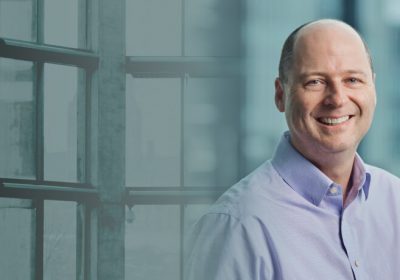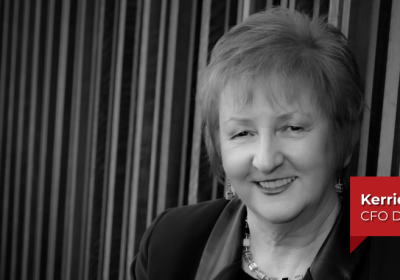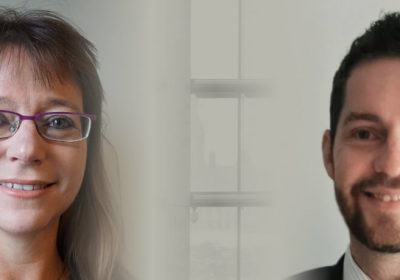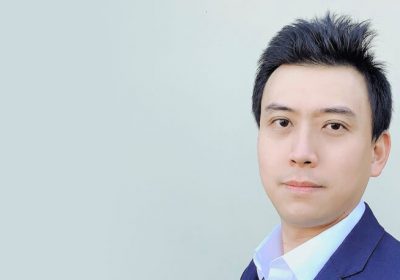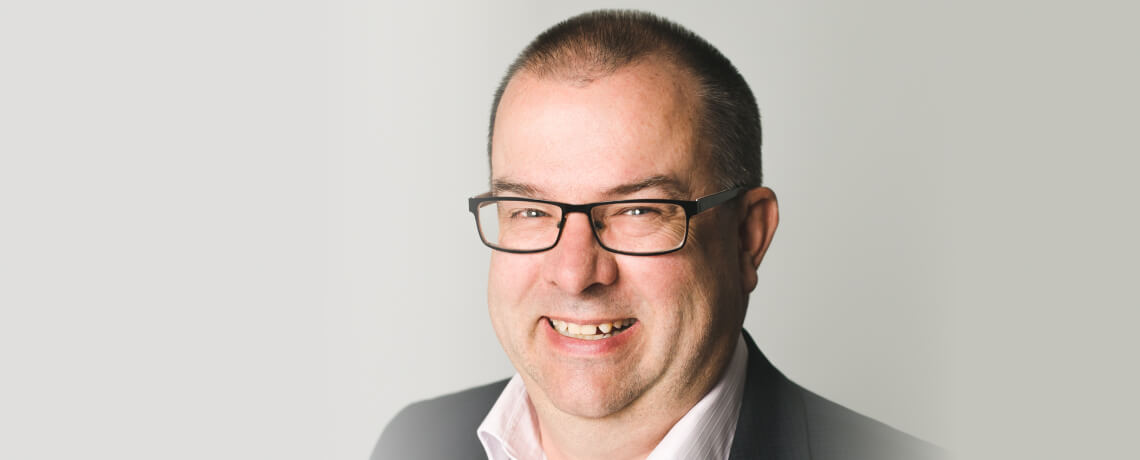
- Author: Jay Orsborn | Finance Journalist, CFO Series
- Posted: March 30, 2020
The Connected CFO
Soft skills not hard numbers
Ericsson ANZ CFO David Spong, says that numbers are somewhat irrelevant and KPI’s don’t drive performance – it is all about people and the story. David’s successful career has been fuelled by self-awareness, developing people, curiosity, collaboration and learning when things go wrong.
When David arrived at Ericsson over 22 years ago, he had neither the expectation nor the ambition to be the CFO of the business which currently turns over approximately $1.1bn.
“I arrived at the age of 27 thinking I’d give it a go for 2-3 years and see where I end up.”
David didn’t have a firm career plan and attributes his success to a bit of luck and being prepared to take a risk. “I was exceptionally fortunate that there were people around me taking far more interest in my career than I was myself.”
David describes himself as “driven, demanding, sometimes a bit impulsive, aiming to be balanced and curious” and he is acutely aware of the impact that his role and position in the organisation can have on those around him.
“I like to think you earn respect but have to acknowledge that the position comes with cachet. It is an absolute privilege to have it you have to be exceptionally careful about how you wield it – you never get it right, but you have to be exceptionally aware of it and constantly calibrate.”
David explains how a distracted look at the wrong moment can send a completely unintended signal that demotivates a team member and the importance of not unnecessarily wielding the influence you have when you encounter something that is frustrating.
Leading with a focus on talent and growth
David recounts being told by a Swedish colleague that
“the calibre of a leader is not measured in what you do but in the talent that you bring through the organisation.”
This philosophy was embodied by Graham, the CFO whom David worked for when he arrived at Ericsson.
“Even now when I speak to Graham, I snap to attention when he talks. Partially because I am still intimidated by him but truly as I have enormous respect for him. Graham would always point out what was wrong but almost never praised because he didn’t want us to get big headed which I begrudgingly accept was the right approach at that time in my career.”
Recognition came from the provision of opportunities and David recounts feeling as though there was a puppet master in the background pulling the strings that brought new challenges and opportunities to grow.
“I try to embody the philosophy of identifying talent and providing talented people with opportunities to grow in how I lead today.”
Change builds resilience and good judgement
David sees change and diversity of experience as a way of building resilience and developing the wisdom to support good decision making. He has looked for new opportunities throughout his career and this thinking influences the qualities that he looks for when building teams.
“Change is a constant and rather than thinking I need people who are comfortable with change, I look for resilience.”
After nearly five years in Melbourne, David looked further afield to grow his skills and spent the next six and a half years working for Ericsson in Saudi Arabia and then Sweden.
The time abroad was very formative for David but not in the way he expected.
“I thought the time in Saudi would be about the things I could teach the local team, but it turned out to be far more about what the experience gave me.”
Two months after arriving in Saudi Arabia, he was asked to step into the CFO position.
“I was 32 years old and being asked to lead the finance function that managed 5% of global turnover – it was a big stretch, but I was up for the challenge. I spent the first six months thinking that I wasn’t skilled enough to do the job and then after realising that an enormous amount of work needed to be done then spent 3 years transforming and growing the local team.“
The power of asking why
David’s first big lesson in Saudi was what he calls “the power of asking why – especially if something does not feel right.” He recalls the time when one of his team asked if they could buy a piece of equipment – it seemed like a reasonable request, but something didn’t sit right. After many more questions David realised that he had a completely different issue on his hands and this required a very different course of action. He wouldn’t have discovered this unless he took the time to ask “why” many more times. Although David solved the issue, he still carries the concept of “sceptical curiosity” with him today.
David’s world was literally shattered when the Ericsson compound in Riyadh was hit by a suicide bomber that killed many people and left him as the most senior person on the residential compound for several hundred shocked and frightened staff and their families.
“When you have several hundred people turning up on your doorstep looking for direction and support, it is inevitable that you experience some level of personal growth as you very quickly need to stop being “the finance guy” and start being a leader.”
Look for the subtle signs of communication
David recalls how the time abroad taught him to read the subtle signs of people’s communication and the art of drawing out important but sensitive information.
This included reading signs of stress during a crisis and being approachable enough for people to feel safe giving negative feedback in a culture that is only comfortable saying what works well.
“Even today, I learn more about what is happening at the coffee machine than I do in steering committee meetings.”
Influence through respect and adding value
When David returned to Australia and took on the ANZ CFO role, he had a finance team of 85.
Ericsson has since had a global drive to move to functional specialist teams and moved many support functions offshore. In 2011 the majority of the Australian finance function was moved to hubs around Asia and today David has no direct reports.
“I have functional teams that have an obligation to deliver financial services across the Australia and New Zealand organization but none of them report to me.” David describes a structure that has been designed to force collaboration between teams.
“Your ability to get things done relates to your ability to influence and be respected for the contribution you can make – you build a brand around getting involved, brokering solutions and getting things done.”
Driving performance through collaboration not KPI’s
He believes that KPI’s are just a “means to beat people up” and that they don’t improve performance.
“Shared success is the real way to drive performance and this is about understanding how to support each other. This starts with a conversation, building intimacy and a feeling that you have each other’s backs and being aware that you might have information that the other party needs. Put simply, my peer’s success is my success.”
This collaborative approach is the only path for David and he consciously rejects the concept that he refers to as “failing, but having the moral high ground.”
Wisdom of getting it wrong
Diversity of experience and the wisdom gained through getting it wrong are two things that David believes have been key for preparing him for the Ericsson CFO role.
He cites his role as a non-executive director of CPA Australia as one of the most challenging of his career.
“We saw huge changes coming to the profession and were supportive of an agenda to transform as quickly as possible. CPA Australia has an extremely diverse group of members and whilst there were supporters of the changes in strategy, there was a part of the membership who felt as though their membership body were leaving them behind and not understanding their needs.”
Striking the right balance between moving fast and keeping everyone feeling as though they’re involved and listened to can be a big challenge.
This “harrowing” experience taught David some valuable lessons. “Diversity of thought and outlook is critical, and you need a balance of optimism and pessimism when making decisions that impact a wide group of people.”
Learning the big lessons when things go wrong influences how David leads today and he says
“I have personally learnt the most when I get things wrong as opposed to when I am successful”
Time to think about the big picture
David cites the importance of building in time to think and reflect at work and often spends time exploring ideas with the CEO.
“We have a complex business and it is critical that we take time to reflect and think about ways to empower teams and simplify things. One question we constantly ask ourselves is ‘how would we disrupt ourselves’ and we use these ideas to shape how we work.”
David describes a big pitch that Ericsson has been working on as a way of further illustrating the importance of keeping the big picture in mind when delivering on operations.
“We had two teams working on the pitch – one writing Ericsson’s pitch and the other working on what we would do if we were the competition.”
Keeping it balanced
The importance David places on people, relationships, balance and growth through diversity of experience at work carry through into his personal life.
He is a committed husband and father.
When not working he enjoys playing the online games with his children, gardening, socialising and good food. He is also the chairman of the board for a small community bank.
It is a lot to fit in, yet David does not appear stressed and worn down by the competing demands on his time. There is definitely something we could all learn from David’s people centred approach to work and life.



